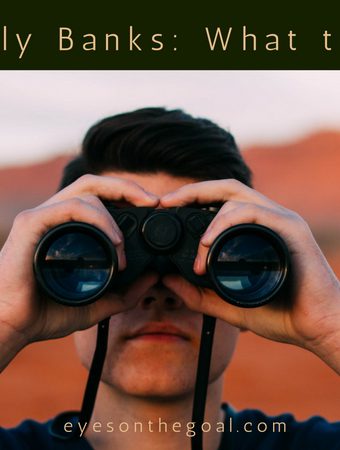The interest rates on home loans are at all times low. The interest rates on savings are close to zero. It’s logical to ask yourself: What do I do with my money?
You are bombarded with all kinds of ‘wise’ advice and marketing messages:
Don’t make your landlord rich – instead of paying rent, invest in your own house!
Put your money into a house and secure your retirement nest!
The rent money are just going away – puff! You will never have them back.
It’s an emotional decision to make – you relate your future and dream self with your dream home. That’s where you will have the ideal lifestyle with your ideal partner (with or without kids); you will have your dreamed spaces, be it a spacious garden, modern work-space or a cosy kitchen to share meals. As you get older, all your grandchildren will visit and you’ll host big dinner parties. You will do it the way you want and you’ll have the space to realize your dreams.
Before you take the leap and decide to buy a house/apartment, consider these major misconceptions:
1. Your home is not an investment
Let’s have a look at the definition of an investment according to Investopedia:
An investment is a monetary asset purchased with the idea that the asset will provide income in the future or will be sold at a higher price for a profit.
Neither you expect your home to provide income, nor selling for a profit is your top criteria when buying. To me, my own house is more of a liability than an asset:
Liability is defined as the future sacrifices of economic benefits that the entity (you) is obliged to make to other entities (the bank) as a result of past transactions or other past events.
2. The Endless unforeseeable costs
If you want to live in a comfortable house and not in a hut with rain dropping on you, you have to do regular renovations. The older the house, the higher the costs. The practice shows that over the lifetime of a house, you need to pay for renovation and maintenance nearly as much as the initial price of the house. These costs can’t be calculated or foreseen – a new fence with the neighbour, more reliable and eco-friendly heating system, new garden furniture every couple of years, bathroom renovation because a pipe broke or you can’t stand these outdated bathroom tiles anymore, etc.
Sometimes you will be obliged to isolate your house by law want it or not. The real estate is a bottomless bucket, in which you will throw your money.
Your most precious asset – time is also something you invest a lot in maintaining a house. It’s all unforeseeable – first the research, planning, visiting potential areas, building, paperwork, applying for a home loan. Once you are an owner, the maintenance duties start- running renovations, paying taxes, attending building meetings.
3. The myth of the house value appreciation
The increase in value is very speculative. Have you thought of the possibility of the prices going down? Buying a home is a long-term venture and it’s unforeseeable if the neighbourhood will still good; if there won’t be a loud or smelly restaurant around, etc.
Imagine it’s 25 years down the road and you have already paid the mortgage. If you decide to sell you will get all kinds of questions and comments from potential buyers: “What is the isolation on the house? If it’s not well maintained and well isolated, the heating costs will be through the roof, I need to renovate, I need to invest a lot…” so you surely will have to reduce the asking price.
Houses you look at today are built by the standards from 20-30 years ago. Isolation, solar panels, electrical installations, floor heating, windows, even the style of the tiles – all these things get outdated relatively quickly (in house terms 10-20 years is a short period of time)
Let’s say you don’t want to sell in 25 years because you know exactly how your life will look like and you don’t need to move for a job or family reasons. You plan to spend your retirement in the house. Let’s see, 25 years ago, did you imagine life exactly like it’s now? If not, you shouldn’t have the illusion that you know how your life will look like in another 25 years.
You also have to make some predictions of what would be the future market demands. The population is growing old, and they will need small apartments around the cities close to supermarkets and health care, with comfort and an elevator.
4. The low-interest rates on home loans
Interest rates on home loans are indeed low. But you have no guarantee the interests will not raise in the upcoming decades. You actually have no control over what the bank will require you to pay in the long run.
5. The home as a solid asset not affected by inflation
Your house is not a fail-safe investment in case of high inflation and monetary reform. I won’t go into details here but there are cases when the state puts an additional tax on house owners (due to inflation or currency depreciation). The state can any time and at any circumstances apply taxes on the house owners. This can happen even if you have long ago paid your house.
6. Owning a home as a sure retirement strategy
Imagine you are retired, and you’ve paid the house. Now the house value has increased by 50%. During your working life, you have been putting all your savings into the house. You didn’t have the chance to invest in some other asset or build wealth. How would you pay for your vacation, an urgent tooth extraction, etc.? With the ‘saved rent’?
7. Freedom and independence
You might think that you can shape the home and make it of your own liking. This is true to some extent, but for things like facade colours, windows, balcony or removing walls, you still need to consult with the community.
In unforeseeable events like job loss, family growing or shrinking or desire for mobility, you are stuck, you lack basic flexibility. Selling a house might take up to a year if you are lucky. Not to mention all the expenses associated with the sale.
The alternative
Check out this alternative scenario: Since you have a sufficient income, rent a wonderful one family house/apartment with _____ ( choose an item of your liking – big garden for the kids, good location, bathtub, etc). When the water tap is dropping, the door doesn’t close or the heating breaks, you call the landlord and you go out minding your own business. The repair doesn’t cost you even a cent.
If you lose your job, it’s also no problem. You only need to cancel the rent with a few months of notice and you can rent the next wonderful house/apartment in some other city. In the worst case scenario, if you can’t work anymore, then you find a smaller, more affordable apartment.
Living without debt (and especially mortgage) is a priceless freedom.
With the initial capital which you would normally put into a buying a house, you open an investment account. Build your investment portfolio by investing regularly even small amounts and let the magic of the compound interest work in your favour.
I’d be glad to buy a house, but that’s like a carpenter selling his toolkit. I don’t want to use up my capital. – Warren Buffett in 1955, when he was 25 years of age
The stock market as the real estate market is pretty much unpredictable. But if you put all your funds on a home, you can’t rely on your money anytime. Someone who rents can withdraw some amounts to cover for an emergency, but as a homeowner what can you do – sell a window?
Exception
If you are absolutely sure if you can meet all the financial consequences, then allow yourself the LUXURY. Owning your own house increases life quality, if your financial situation allows it, go for it!
If this is not the case, the dream house will turn quickly into a depressing prison which you need to keep up with on the cost of your freedom, your relationships and your peace of mind.
Something to be aware of: once you take the decision to continue renting, you will not have a strict monthly obligation. You will find yourself with some extra cash each month. Don’t fall into the trap of spending it on renting a fancier apartment of a better car. Rather invest your time and extra money into building an investment portfolio.
Never see your house as an investment or provision for old age. Look at it as pure luxury.
I partially write this post as a reminder for myself. Every now and then, I have this desire to shop for real estate. I research the market here in Berlin, Germany and I start to dream as I visit a few apartments. Last time I almost made an offer for a well located 2 room apartment. But then I make the calculations, and for the long run, the deal never turns positive for me. I get disappointed and forget about real estate altogether for another year.
What are your experiences with buying a home/renting? Did you make the leap and bought your own home? Share it in the comments section below!
*********************
Photo credit: from Unsplash, header made with Canva




I bought a home years ago. I look at a home as a forced savings account. I know that it will be rise at the rate of inflation but probably no more than that unless of course we’re in a huge bubble, but we all know how that ended. There is definitely nothing wrong with renting especially if you don’t plan to live in an area for a long time. I figure buy only if it makes sense to you 🙂
Hi Mustard Seed Money, thanks for stopping by!
Buying a home is an equation with many variables. The problem is that we humans are bad at estimation. We have no idea how life will look like in 20-30 years from now. This makes buying a home a bit of a gamble. So you gotta know what you’re getting into.
For me freedom is on top of my needs list, so a 30 years mortgage is a no go.